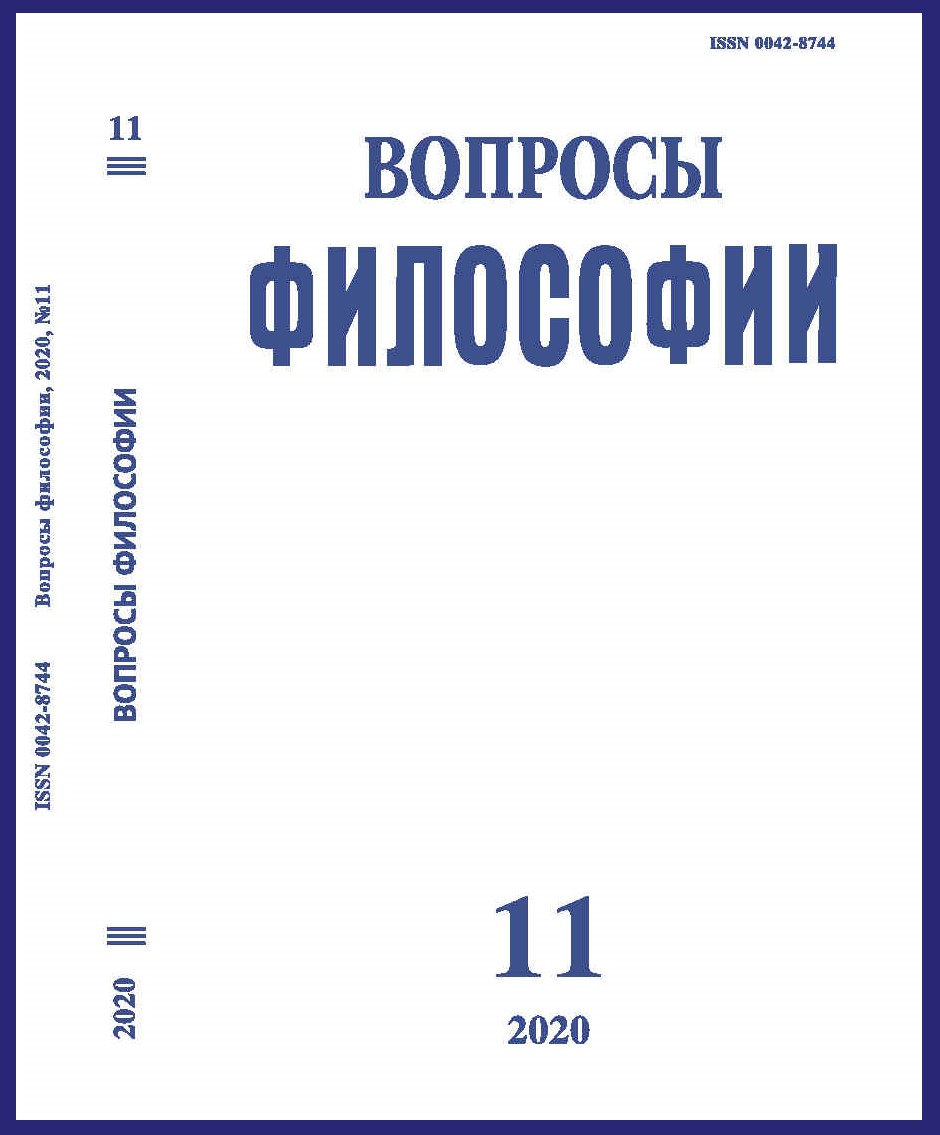Philosophical Congresses:Understanding and Witness-Subject
DOI:
https://doi.org/10.21146/0042-8744-2020-11-77-81Keywords:
congress, uncertainty, understanding, Russian logos, dialogue, Slavic structuralism, aesthetics, witness subject, responsibility.Abstract
The article considers philosophical congresses as phenomena of scientific and cultural life. The experience of holding international philosophical conferences “Russian Logos – 1. Horizons of Comprehension” and “Russian Logos – 2. Modern – Borders of Control” was illustrated illustratively, where a comprehensive diagnosis of research related to understanding the Russian logos was presented. This revelation of unity in plurality is an actual strategy of acquiring meaning, which is extremely indicative in a situation where uncertainty appears as a challenge in science, philosophy, and culture. In terms of perspectives and benchmarks, it is precisely the reflection of uncertainty that characterizes the situation (post) of modernity, acting as one of the intellectual gestures for overcoming the postmodern relativism. In conducting philosophical congresses, the economics of philosophical production in its reflexive and personal content is essential. It can be said that a topological strategy of sense genesis is being implemented with varying degrees of success. This is very important for the formation of a possible philosophical community in Russia, which is quite heterogeneous and controversial in a number of positions. In this context, there is an acute problem of creating a new philosophical “poem of affirmation”, which, for all the features of cultural differences, has similarities and kinship in the multiplicity of projections. The leading role of topological reflection and subjectivity in their correlation with the landscape of life and cultural tradition is indicated. Particular attention is paid to the importance of ethical and aesthetic knowledge in the philosophical reflection of post-modernity. The figure of the subject-witness is presented as an actual configuration of subjectivity in philosophical creativity and socialization processes.

